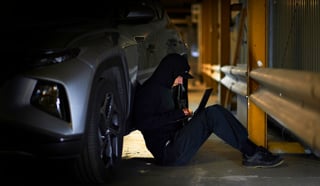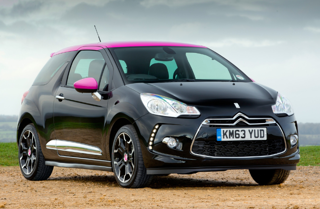It automatically contacts a BMW call centre and provides detailed information about the accident: location, number of front-seat occupants, the crash severity and direction, number of deployed airbags, seat belt status and, in BMWs with rollover sensing, whether a rollover has occurred.
The system also predicts the risk of severe injury using a knowledge-based algorithm called Urgency, which takes the crash parameters into account. The system scans all mobile networks to try to contact the call centre.
A machine-to-machine (M2M) SIM-chip is soldered into the Advanced eCall module and is much more robust than conventional SIM card readers.
However, the ‘advanced’ version of the eCall system is not available in the UK so calls go directly to the 999 emergency services.
As they do not use BMW systems, they can’t see the detailed information such as how many airbags have activated.
Of course, eCall does not prevent accidents. The benefits of the system are realised from reducing the impact of injuries by the earlier arrival of trained and equipped assistance.
In accidents involving a fatality, a third of deaths occur within 10 minutes: eCall cannot help these people.
However, of the remaining two-thirds, currently around half of the deaths occur within 90 minutes of the accident and the other half at a time later.
eCall has the potential to assist these two groups by delivering faster and better focused emergency assistance.
According to some reports, eCall could reduce accident response times by up to 50% in rural areas and 40% in urban areas.
Studies by the EC estimate that eCall could save up to 2,500 lives every year in the 25 EU member states.
However, BMW reckons that by using Urgency to predict the likely severity of injuries, its Advanced eCall might be able to save an additional 1,500 lives a year, if all cars had such a system and if emergency services were able to make full use of the additional information.
In the UK, eCall will be of most benefit to single vehicle accidents, especially in rural areas and at night. Here there are few alternative ways to quickly identify and locate an accident.
According to research carried out by consultancy specialists SBD, assuming two-thirds of all compatible vehicles on UK roads have eCall by around 2020, the system could be saving around 70 lives a year and reducing serious injuries by around 490 a year.
It has been argued that a greater number of lives could be saved by investing in alternative options such as improving road infrastructures.
This is why the UK has so far refused to sign up to the Memorandum of Understanding announced by the European Commission back in 2004 in an attempt to generate momentum for the deployment of eCall.
Accident prevention will also save many more lives – and it’s currently an area where telematics has the edge.
Monitoring driver performance and taking action to address those worst offenders who frequently speed, brake harshly or corner too fast is proven to reduce accident rates – in some cases by 50% or more.
But another potential battleground between telematics and eCall is pay-as-you-drive (PAYD) insurance.
Trimble has just announced a deal with Zurich and believes 2011 will be the year of PAYD insurance.
“We’re seeing a lot of interest in telematics from insurers. The market for insurance telematics has picked up again,” said Otter.
“There is a need for affordable insurance for everyone and the Government is concerned about uninsured drivers. Monitoring driving and giving fair premiums helps address the problem.
Telematics is a way to control costs.
However, James believes an insurance function could equally be fulfilled by eCall.



















Login to comment
Comments
No comments have been made yet.